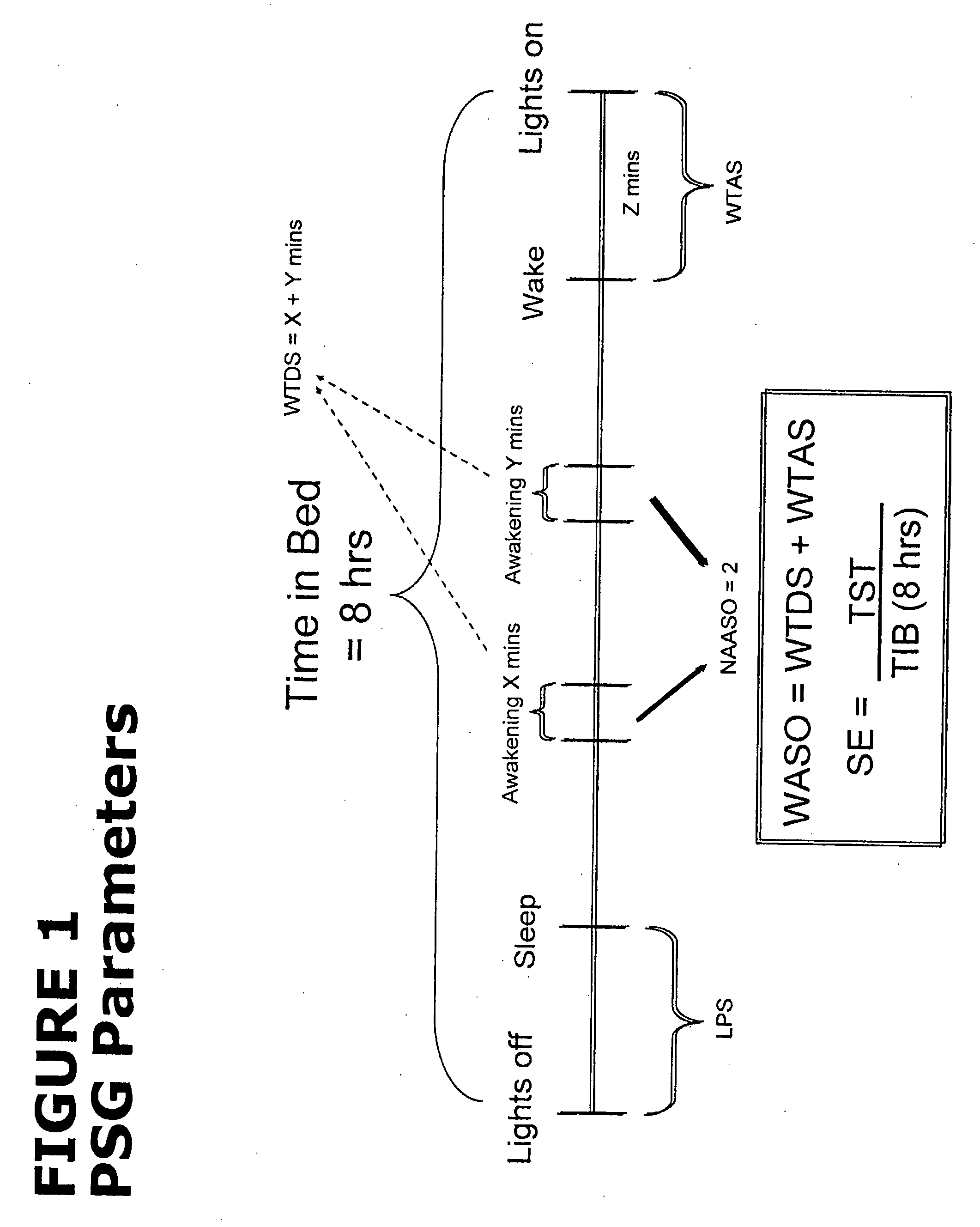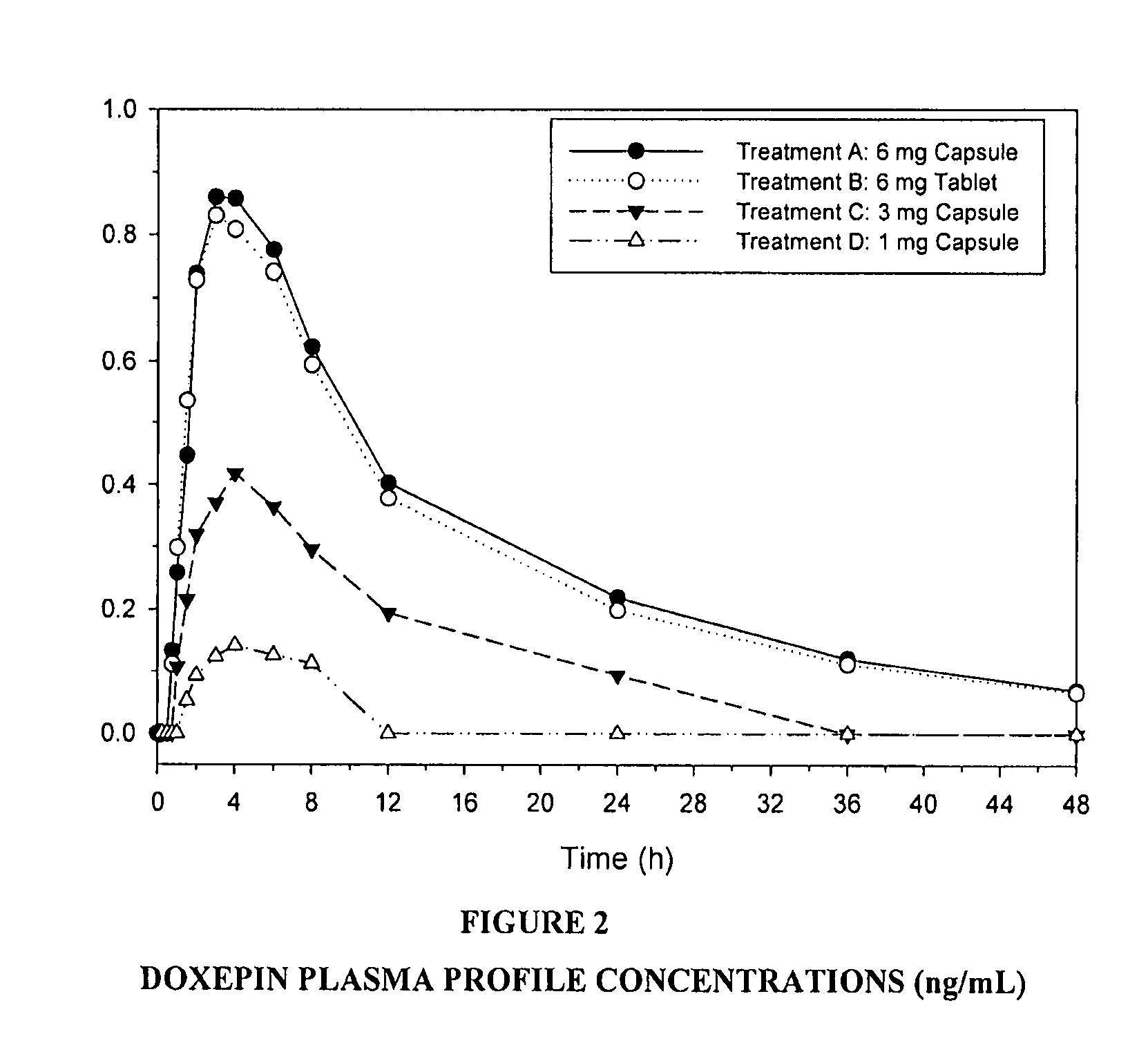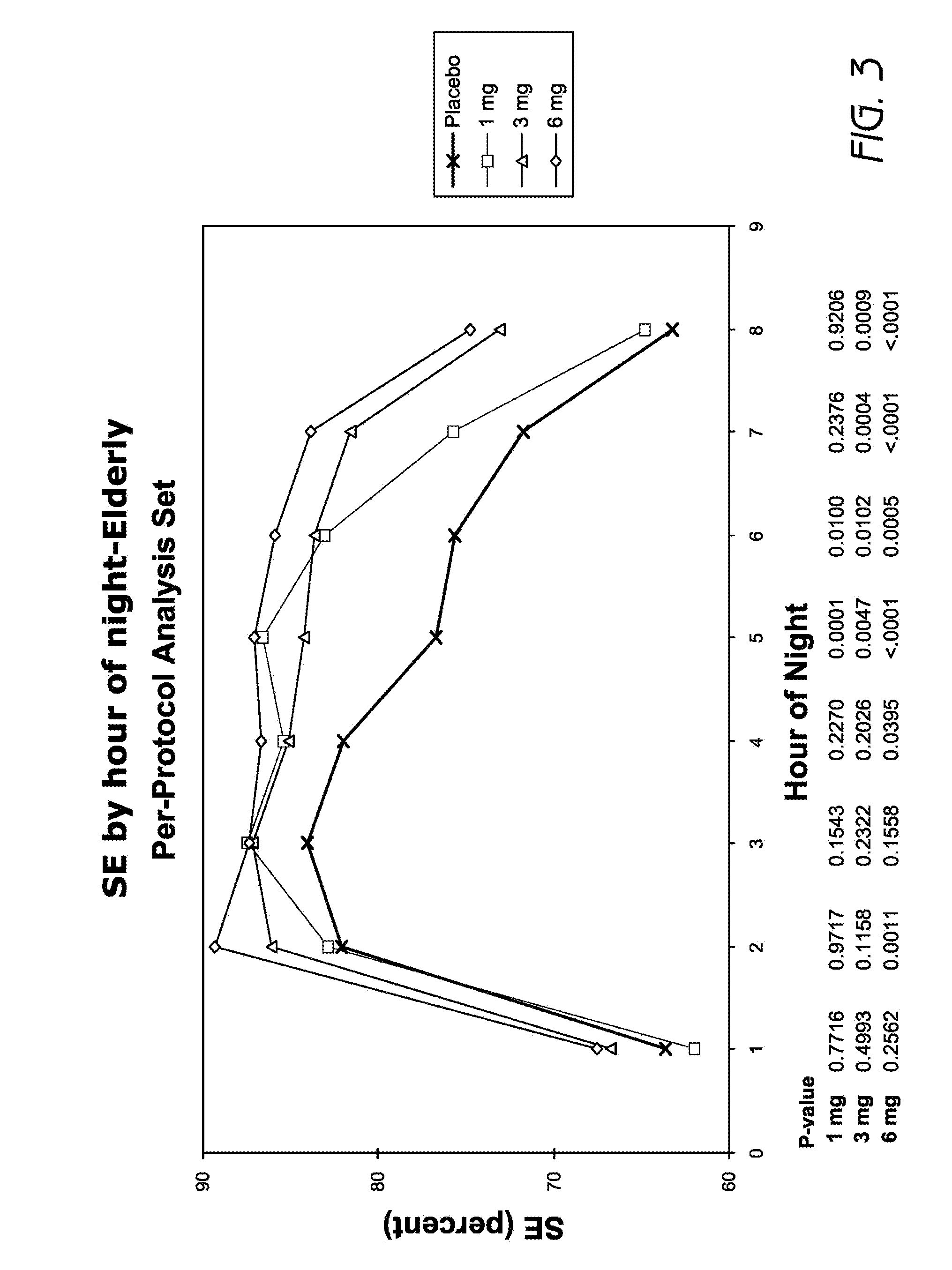Methods of using low-dose doxepin for the improvement of sleep
- Summary
- Abstract
- Description
- Claims
- Application Information
AI Technical Summary
Benefits of technology
Problems solved by technology
Method used
Image
Examples
example 1
[0096] Doxepin is prepared by the following method.
[0097] (a) A Grignard compound is prepared in the conventional manner from 4.8 g (0.2 gram-atom) magnesium in 100 mL ether and 30 g (34 ml) (3-chloropropyl)-tertbutyl ether and 16.40 grams (0.078 mol) 6,11-dihydrodibenzo-[b,e]-oxepine-11-one dissolved in 100 mL ether is added in dropwise fashion so that the contents of the flask boil lightly. The mixture is heated for 1 hour with agitation in a reflux condenser to complete the reaction and then it is decomposed with ammonium chloride solution. The product which is obtained by separating, drying and eliminating the solvent produced, when the ether residue (24.0 g) is extracted with ligroin, amounts to 20.3 g (80.0% of theory) of 11-tertbutoxypropyl)-11-hydroxy-6,11-dihydrodibenzo-[b,e]-oxepine, having a melting point of 124-126° C. The (3-chloropropyl)-tertbutyl ether is thereafter obtained in the following manner: 19 g (0.2 mol) 1-chloropropanol-3), 50 mL liquid isobutylene and 0.5...
example 2
Preparation of desmethyldoxepin
[0101] Desmethyldoxepin is prepared according to the following method. Anhydrous 3-methylaminopropyltriphenylphosphonium bromide hydrobromide (1530 g) prepared as in U.S. Pat. No. 3,509,175, is suspended in 4.5 L dry tetrahydrofuran and 6.0 moles of butyl lithium in heptane is added during 1 hour. After an additional 30 minutes, 483 g of 6,11-dihydrodibenz[b,e]oxepin-11-one, is added to the deep red solution and the reaction is maintained at reflux for 10 hours. Water, 500 mL, is added at room temperature and the solvent is removed in vacuo. The crude residue is treated with 10% hydrochloric acid until acidic (pH 2) and then 1.5 L benzene is added. After stirring, the mixture separates into three phases (an insoluble hydrochloride salt product phase, an aqueous phase and an organic phase). The benzene layer is removed by decantation and the remaining mixture is rendered basic with 10% sodium hydroxide solution and is extracted with 3×1500 mL portions ...
example 3
Preparation of (E)-desmethyldoxepin
[0102] (E)-Desmethyldoxepin is prepared from doxepin hydrochloride as follows. Doxepin hydrochloride (E / Z=85 / 15) (55.0 g, 0.174 mol) is dissolved in 600 mL H2O, made basic with 6M NaOH, and extracted with CHC13 (3×600 mL). The CHC3 extracts are combined, dried over Na2SO4, and solvent removed in vacuo. The resulting oil is dissolved in 250 mL EtOH, then 21.15 g (0.182 mol) of maleic acid dissolved in 100 mL EtOH is added slowly, with stirring, followed by an additional 350 mL EtOH. The resulting cloudy solution is refluxed until it becomes clear, then allowed to stand overnight at room temperature; the resulting crystals are isolated by vacuum filtration. Additional recrystallization from EtOH yields a white crystalline product (E)-Doxepin maleate) with an E / Z ratio of 98 / 2. (E)-Doxepin maleate (2.50 g, 6.32 mmol) is then partially dissolved in 60 mL H20, made basic with 6M NaOH, and extracted with CHC13 (3×60 mL). The CHC13 extracts are combined,...
PUM
| Property | Measurement | Unit |
|---|---|---|
| Time | aaaaa | aaaaa |
| Mass | aaaaa | aaaaa |
| Mass | aaaaa | aaaaa |
Abstract
Description
Claims
Application Information
 Login to View More
Login to View More - R&D
- Intellectual Property
- Life Sciences
- Materials
- Tech Scout
- Unparalleled Data Quality
- Higher Quality Content
- 60% Fewer Hallucinations
Browse by: Latest US Patents, China's latest patents, Technical Efficacy Thesaurus, Application Domain, Technology Topic, Popular Technical Reports.
© 2025 PatSnap. All rights reserved.Legal|Privacy policy|Modern Slavery Act Transparency Statement|Sitemap|About US| Contact US: help@patsnap.com



